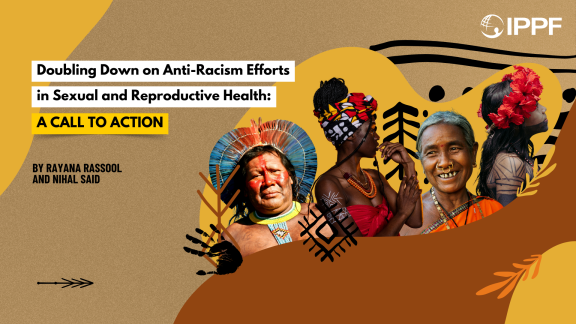As we join together to commemorate the International Day Against Racial Discrimination, it becomes increasingly apparent that we must address the lingering colonial legacies within the realm of sexual and reproductive health (SRH). Despite our collective commitment to rooting out racism and discrimination in this sector, it's clear that our programs, research endeavors, and advocacy initiatives have not escaped the pervasive influence of colonialism.
Since 2021, the International Planned Parenthood Federation (IPPF) Secretariat has embarked on a journey of introspection, recognizing our duty to decolonize the way we generate knowledge and conduct programming in the SRH domain. This journey has been characterized by collaboration with decolonial scholars and the active participation of numerous Member Associations (MAs), employing a comprehensive approach grounded in decoloniality, intersectional feminism, critical race theory, and reproductive justice.
Member Associations involved in this transformative process have shared compelling narratives that expose the colonial nature of knowledge, power dynamics, and entrenched biases within research practices. They've recounted instances where their perspectives were marginalized by external researchers, resulting in research outcomes built on flawed assumptions and devoid of practical application. Moreover, they've highlighted power imbalances where local actors were relegated to mere data sources rather than being active partners in the research process. These revelations underscore the pressing need for systemic change within the sector to promote racial equity and decolonize knowledge production and program development.
In response to these insights, IPPF is taking concrete steps to address the inherent power imbalances in SRHR research partnerships. We advocate for recognizing Member Associations as local knowledge experts and empowering them to take leadership roles as principle and co-principal investigators in research endeavors. Additionally, we are pushing for direct funding flows from donors to Member Associations and engaging with donors to address power asymmetries in SRHR research and programming. Furthermore, we are committed to ensuring that research is conducted ethically, responsively, and inclusively, free from exploitative practices.
Looking ahead, IPPF remains steadfast in its commitment to decolonizing its operations and research agendas, as outlined in the 2024-2028 strategy pillar, 'Walk the Talk'. By making a conscientious effort to amplify voices from the Global South, we are dedicated to reshaping our research and knowledge agendas to ensure they authentically represent diverse perspectives and experiences.
In a world where justice spaces are shrinking and human rights violations persist, particularly in conflict zones such as Gaza, Sudan, and the Democratic Republic of the Congo, our commitment to anti-racism becomes even more crucial. This is why we have made a public declaration about it and why we emphasize the importance of actively combating racism, rather than merely paying lip service to concepts like diversity, equity, inclusion, and intersectionality. We recognize racism as the foundational oppression that perpetuates other forms of injustice, particularly affecting Black people and people of colour, especially within the SRH sector.
In essence, our journey toward decolonization is not just a reckoning; it's an ambitious pursuit of justice and equity within the SRH sector, reflecting IPPF's unwavering dedication to transformative change.
This International Day for the Elimination of Racial Discrimination, let us reaffirm our commitment to the principles of anti-racism. We all have a responsibility to call racism out, and to interrogate the various ways it operates. Let us pledge to take a stand against racism in all its forms, to challenge prejudice and discrimination wherever we encounter them, and to work tirelessly towards a world where every individual is treated with dignity, respect, and compassion.
By Rayana Rassool and Nihal Said, members of the IPPF Anti-Racism Group
Statement on Addressing root causes of power imbalances and gender inequality to achieve sustainable development and equity.
“I deeply feel that the key to eradicating all forms of discrimination and attaining genuine sustainable development and equity for everyone lies in the unwavering commitment of every individual and stakeholders. The engagement of grass roots communities is imperative in this battle as we always say: “nothing about us, without us”.
It necessitates sincere willingness and collaborative endeavors to address the underlying root causes and issues of power imbalances and gender inequality. Similarly the continuing support and contribution of the development partners in this battle is vital, however the hand-out by development partner can be provided with less restriction and in alignment to the country priorities.
Together, through genuine dedication and united efforts, we can create a world where fairness, opportunity, and equality prevail for all. With collaborative efforts, we can turn the tide against discrimination, shaping a world where every voice is heard and valued. Let's stand together against discrimination, embracing diversity as the key to sustainable development”.
By Mrs Norma Yeeting, Executive Director of KFHA (Kiribati)
when









